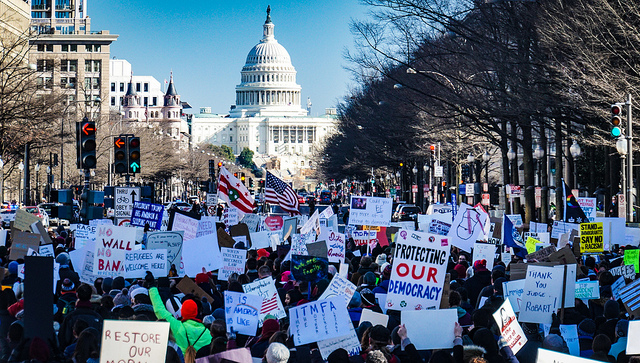Today, March 30, 2017, a federal judge from the state of Hawaii extended a court order blocking the President’s new travel ban from being enforced. In a 24-page decision, Judge Derrick Watson of Hawaii issued a preliminary injunction bringing the President’s executive order to a screeching halt indefinitely. Judge Watson first gained national attention two weeks ago, following his issuance of a temporary restraining order or TRO, which prevented the federal government from enforcing all provisions of the travel ban for a 14-day period. Watson’s TRO was meant to provide temporary relief pending further litigation. The state of Hawaii asked the judge to convert the TRO into a longer-lasting form of relief known as a preliminary injunction, at least until a higher court could issue a permanent ruling. The President’s embattled executive order sought to prevent the admission of foreign nationals from 6 Muslim majority countries including Syria, Somalia, Sudan, Iran, Libya and Yemen, for a 90-day period as well as the admission of Syrian refugees for a 120-day period.
In his decision Judge Watson wrote that he based his grant of the preliminary injunction on the strong likelihood that the state of Hawaii would succeed in proving that the travel ban violated the establishment clause of the U.S. Constitution which protects freedom of religion. In addition, the state of Hawaii successfully argued that absent the provisional relief, citizens of the state would be irreparably harmed. Attorneys for the state added that the state’s national economy would suffer in the absence of relief, and that its state universities would also be harmed by the President’s executive order in both the state’s ability to retain and recruit foreign born students and faculty.
Attorneys representing the Department of Justice have already filed a notice to appeal today’s decision to the Ninth Circuit Court of Appeals. The Department of Justice will attempt to reinstate President Trump’s executive order, or in the very least enforce key provisions of the order including suspending the admission of foreign nationals from the 6 Muslim Majority countries and a temporary freeze on the U.S. Refugee Admissions Program, until the administration has increased vetting and security precautions. Should this appeal fail, the Trump administration has vowed to appeal to the U.S. Supreme Court, a bench that is currently ideologically split, absent the confirmation of Neil Gorsuch, who is expected to take the seat of former Supreme Court Justice Antonin Scalia. The Department of Justice has also appealed a separate action by a federal judge from the state of Maryland to the Fourth Circuit Court of Appeals. That court is currently deciding whether a full court or three judge panel ultimately be responsible for issuing a ruling on the President’s controversial executive order.
Until the Ninth and Fourth Circuit Courts issue a ruling on the order, the preliminary injunction will prevent the federal government from enforcing or implementing sections 2 (the temporary suspension of entry of nationals of countries of particular concern) and 6 (suspension of the U.S. Refugee Admissions Program) of the executive order nationwide. Watson added that “enforcement of these provisions in all places, including the U.S., at all U.S. borders and ports of entry, and in the issuance of visas is PROHIBITED, pending further orders from this Court.”
To read the complete ruling please click here. For more information on President Trump’s executive orders please visit our website.
 Visa Lawyer Blog
Visa Lawyer Blog


